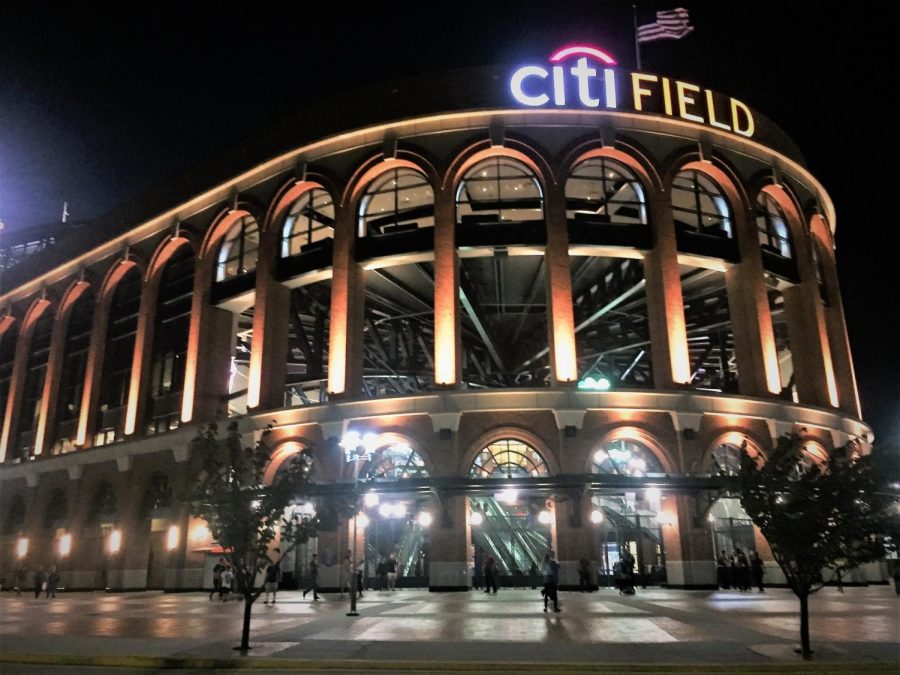Mets eliminated from postseason will finish season with a losing record
October 1, 2021
After spending a record number of days leading baseball’s weakest division behind historic pitching from ace Jacob DeGrom, the New York Mets were eliminated from the postseason contention on Sept. 25. With their loss to the Milwaukee Brewers the following day, the Mets will finish 2021 with a loss, which makes this their fourth losing season in five years— adding insult to injury.
While managerial decisions, lack of trade deadline activity, injuries, a grueling schedule and struggling with pitching could be to blame, the main culprit has been a mediocre offense that never improved over the season.
The team ranks as the third lowest in the league in runs scored per game and fourth lowest in home runs, slugging percentage and on-base plus slugging percentage in the National League, according to data from Baseball Reference. Only first baseman Pete Alonso has an RBI higher than league average at 89.
Infielder Jeff McNeil, and shortstop Francisco Lindor, who signed a 10-year and $341 million contract extension after being traded from Cleveland, both averaged career low batting averages. Outfielder Michael Conforto’s batting average was the lowest in his past five seasons.
In last year’s shortened season, the Mets averaged 4.77 runs per game. That lack of production led to criticism from first-year owner Steve Cohen.
Shortstop Javier Baez was traded from the Cubs at the deadline in part to resuscitate the offense. During his Mets tenure he has had successful production, with a batting average of .309 and 22 RBIs in 42 games. However, his most memorable moment with the team was when he booed fans in a home game against the Washington Nationals.
A better offense would have greatly benefitted the team. During their two weeks against the top two baseball teams — the Los Angeles Dodgers and San Francisco Giants — the Mets went 2-9, with seven of 11 games being decided by one run. The Mets could have compensated for their pitching in the second half of the season with better hitting.
Pitching was the Met’s strength this year behind DeGrom, who pitched a historic first half of the season. That all changed when DeGrom went on the injured list on July 18 because of forearm tightness. He has not pitched since and as a result, the pitching staff has immensely struggled since his ulnar collateral ligament sprain.
Pitcher Taijuan Walker came back to earth after starting off so strong. Before the all-star break, Walker had a 2.66 ERA after 17 appearances, impressive enough to replace Jacob DeGrom on the all-star roster. His ERA now stands at 4.57. In his most recent performance against the Boston Red Sox, he gave up six earned runs on six hits in two innings.
Fatigue from Walker’s 151.2 innings pitched, the most since his 2017 season in Arizona where he pitched 157.1 innings, may be the reason for his recent struggles.
In retrospect, Carlos Carrasco, the Mets other star acquisition from the Cleveland deal has not looked good. Carrasco currently has a 5.73 ERA. His most notable struggles come in the first inning, in which he has a 14.73 ERA.
Noah Syndergaard has yet to pitch for the team since 2019 after undergoing Tommy John surgery for a torn UCL, suffering numerous setbacks this year, including testing positive for COVID-19. To make matters worse, Syndergaard is an impending free agent at the end of the season.
With all that being said, the Mets ERA still ranks No.4 in the league so although the pitching staff has struggled recently, it’s the offense that has really let fans down this season.








